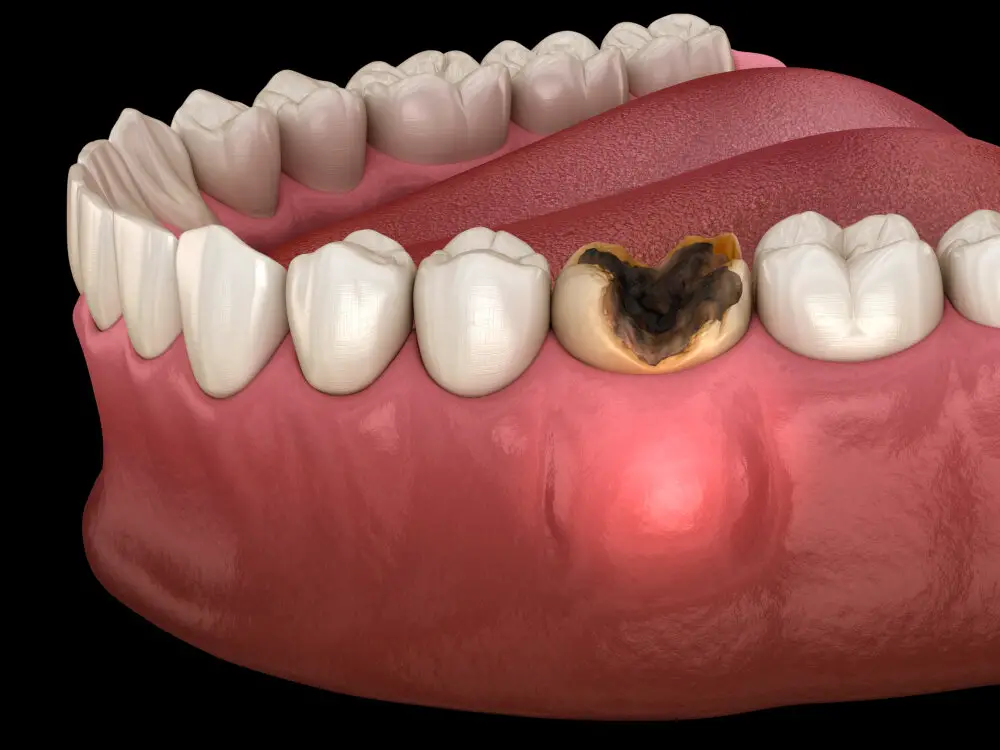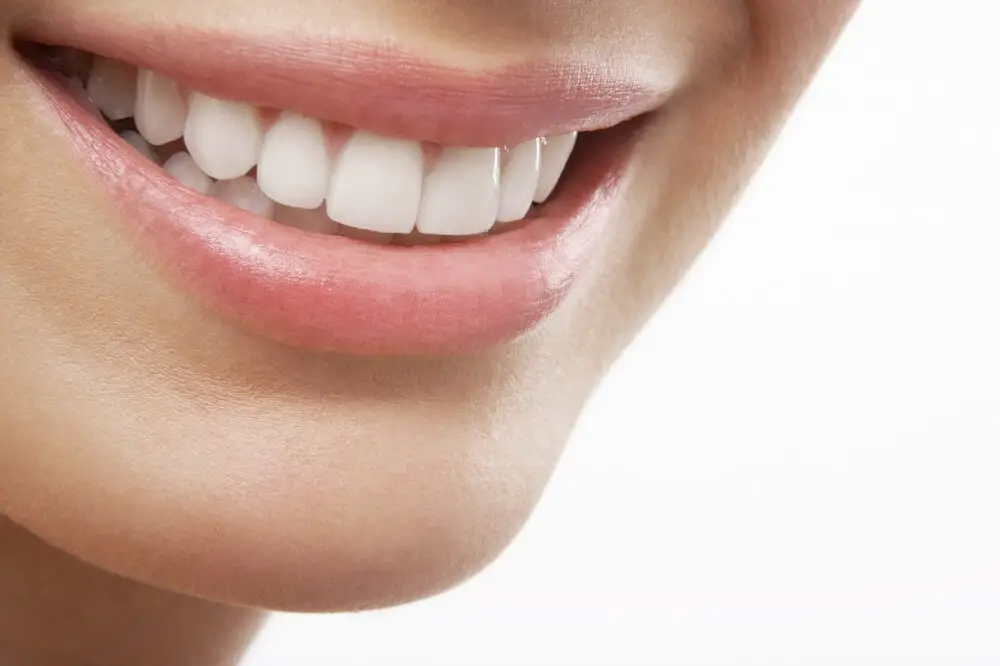Deep Cleaning of Teeth: Here’s What to Expect for a Healthier Smile

Deep cleaning of teeth is a crucial aspect of maintaining oral hygiene. It is a specialized dental procedure that involves the removal of plaque and tartar buildup from the teeth and gums. This procedure is typically recommended for individuals who have not had their teeth cleaned in a while or have persistent gum disease. Deep cleaning can help prevent tooth decay, gum disease, and other dental problems, leading to a healthier and brighter smile. During a deep cleaning procedure, a dental hygienist or dentist will use special instruments to remove the plaque and tartar buildup from the teeth and gums. They will also clean the areas beneath the gum line, which are difficult to reach with regular brushing and flossing. Although the procedure can be uncomfortable for some individuals, it is essential for maintaining oral health and preventing serious dental problems. In this article, we will explore what to expect during a deep cleaning procedure and how it can help keep your smile healthy and bright.
Deep cleaning of teeth, also known as scaling and root planing, is a dental procedure that involves removing plaque and tartar buildup from below the gum line. This type of cleaning is necessary when regular brushing and flossing are not enough to prevent gum disease. During the procedure, a dental professional will use specialized tools to remove the buildup of bacteria and debris that can accumulate around the teeth and gums. The process may involve local anesthesia to ensure comfort during the treatment. Deep cleaning is an essential part of maintaining healthy teeth and gums, and it can help prevent further damage or infection. Patients can expect a healthier smile and improved oral health after receiving this type of cleaning.
Maintaining good oral hygiene is crucial to avoid various dental problems, including bad breath, gum disease, and tooth decay. Regular brushing and flossing may not always be enough to remove stubborn plaque and tartar build-up in the teeth and gums. Deep cleaning, also known as scaling and root planing, is a dental procedure that involves thorough cleaning of the teeth and gums to remove plaque and tartar build-up. This procedure helps to prevent and treat gum disease and other oral health problems. Deep cleaning can also improve the appearance of your smile, boost your confidence, and promote overall oral health. Therefore, it is essential to schedule regular deep cleaning appointments with your dentist to maintain good oral hygiene and keep your teeth and gums healthy.
Signs that You Need a Deep Cleaning

Regular dental checkups and cleanings are essential to maintaining good oral health. However, sometimes, your teeth may need a more thorough cleaning than the routine cleanings. This is where deep cleaning comes in. Deep cleaning is a procedure that involves removing plaque and tartar buildup below the gum line. Here are some signs that you may need a deep cleaning: Firstly, if you have bleeding gums, it may be a sign that you need a deep cleaning. Bleeding gums are often a symptom of gum disease, which is caused by the buildup of bacteria in the mouth. If left untreated, gum disease can lead to tooth loss and other serious health problems. A deep cleaning can help remove the bacteria and plaque that are causing the bleeding gums and prevent further damage to your teeth and gums. Secondly, bad breath is another sign that you may need a deep cleaning. Bad breath is often caused by the buildup of bacteria in the mouth, which can be difficult to remove with regular brushing and flossing. A deep cleaning can help remove the bacteria and plaque that are causing the bad breath, leaving your mouth feeling fresh and clean. If you are experiencing any of these signs, it may be time to schedule a deep cleaning with your dentist to maintain good oral health.
Deep cleaning of teeth is essential for maintaining good oral health. There are several signs that indicate a deep cleaning is necessary. The first sign is bleeding gums while brushing or flossing. This indicates the presence of tartar and plaque buildup, which can lead to gum disease if left untreated. Another sign is bad breath or a bad taste in the mouth, which is caused by bacteria buildup in the mouth. Teeth that are sensitive to hot or cold foods and drinks are also an indication that deep cleaning is necessary. Additionally, if you haven’t had a dental cleaning in over six months, it’s time to schedule an appointment with your dentist for a deep cleaning. By being aware of these signs, you can take the necessary steps to maintain good oral health and prevent serious dental problems.
During a deep cleaning of teeth, there are several signs that patients can expect to experience. One of the most notable is the sensation of pressure and vibration as the dental hygienist uses specialized tools to remove plaque and tartar buildup from the teeth and gums. Patients may also notice increased sensitivity during and after the procedure, particularly if they have areas of gum recession or exposed tooth roots. Additionally, some patients may experience mild bleeding or discomfort as the hygienist works to remove plaque and bacteria from beneath the gumline. However, these symptoms typically resolve within a few days, leaving patients with a healthier, brighter smile.
The Procedure of Deep Cleaning

Deep cleaning, also known as scaling and root planing, is a dental procedure that removes plaque and tartar buildup from teeth and gum lines. This process is necessary to prevent gum disease, which can lead to tooth loss and other serious health issues. During the deep cleaning procedure, a dental hygienist or dentist will use specialized tools to remove plaque and tartar from the teeth and gums. This process may also involve the use of a local anesthetic to numb the gums and make the procedure more comfortable for the patient. The procedure of deep cleaning typically involves two separate appointments, one for each half of the mouth. The first appointment will involve cleaning the upper half of the mouth, while the second appointment will focus on the lower half. During each appointment, the dental professional will use specialized tools to remove plaque and tartar buildup from the teeth and gum lines. This process may take up to an hour or more, depending on the severity of the buildup. After the procedure is complete, patients may experience some sensitivity and discomfort, but this is typically temporary and can be managed with over-the-counter pain relievers. Overall, deep cleaning is an essential part of maintaining good oral health and preventing serious dental issues.
Deep cleaning of teeth, also known as scaling and root planing, is a dental procedure that involves the removal of plaque, tartar, and bacteria that have accumulated below the gum line. The first step in the procedure involves numbing the area with a local anesthetic to ensure the patient’s comfort. The dentist or hygienist then uses specialized tools to remove the buildup of plaque and tartar from the teeth and roots of the teeth. The roots of the teeth are then smoothed to remove any rough spots that can harbor bacteria. The procedure may take one or more appointments depending on the extent of the buildup and the patient’s oral health. After the procedure, patients may experience some discomfort and sensitivity, but this should subside within a few days. This deep cleaning can significantly improve oral health and prevent gum disease, leading to a healthier smile.
Deep cleaning of teeth is a procedure that involves the removal of accumulated plaque and tartar from the teeth surface and gumline. This process is performed by a dental professional using various tools and equipment. Firstly, a dental mirror is used to examine the mouth and locate areas that need more attention. Next, a scaler is used to remove plaque and tartar from the teeth surfaces, followed by an ultrasonic scaler to remove any remaining debris. Afterward, a water irrigator is used to flush out any remaining debris and rinse the mouth. Finally, the teeth are polished with a special dental paste using a rotary brush to give them a smooth and shiny appearance. All these tools and equipment are essential for a thorough and effective deep cleaning of teeth, leaving you with a healthier, brighter smile.
Aftercare for Deep Cleaning

After undergoing a deep cleaning procedure, it is important to take proper care of your teeth and gums to ensure that they remain healthy and free from any further damage or infection. Your dental hygienist or dentist will provide you with specific instructions on aftercare, which you should follow diligently for the best results. Generally, after a deep cleaning, you should avoid consuming any hard or chewy foods for a few days and stick to a soft diet. This is because your gums may be sore and sensitive, and hard foods can cause further irritation or damage. You should also avoid smoking or using tobacco products as they can delay the healing process and increase the risk of infection. Additionally, you should continue to maintain good oral hygiene habits such as brushing twice a day, flossing regularly, and using an antibacterial mouthwash. Your dentist may also recommend using a water flosser or interdental brush to clean hard-to-reach areas between your teeth and gums. It is also essential to attend follow-up appointments with your dentist to ensure that your teeth and gums are healing properly and to address any concerns or issues that may arise. By following these aftercare instructions and maintaining good oral hygiene practices, you can promote the health and longevity of your teeth and gums.
After undergoing a deep cleaning procedure, it is important to follow the dentist’s instructions to maintain the health of your teeth and gums. The gums may feel sore and sensitive for a few days following the procedure, so it is recommended to avoid hard or crunchy foods. Brushing and flossing regularly, as well as using an antiseptic mouthwash, can help prevent infection and promote healing. It is also crucial to attend follow-up appointments with the dentist to ensure that the gums are healing properly and to address any concerns or questions. With proper care, a deep cleaning can lead to a healthier, brighter smile.
After undergoing a deep cleaning procedure, it is crucial to maintain good oral hygiene habits to ensure a healthier smile. One of the most important things to do is to brush your teeth twice a day with fluoride toothpaste and floss regularly to remove any food particles and plaque buildup. It is also recommended to use an antimicrobial mouthwash to kill bacteria and freshen your breath. Avoiding sugary foods and drinks, quitting smoking, and limiting alcohol consumption can also contribute to a healthier mouth. Regular dental check-ups and cleanings every six months can help prevent further dental issues. By incorporating these habits into your daily routine, you can maintain a healthy and bright smile for years to come.
Benefits of Deep Cleaning

Deep cleaning of teeth is an essential dental procedure that can bring numerous benefits to your oral health. It involves a comprehensive cleaning of your teeth and gums, which can eliminate the buildup of plaque and tartar that may be difficult to remove with regular brushing and flossing. One of the most significant benefits of deep cleaning is that it can prevent gum disease, which is a common oral health problem that can lead to tooth loss and other serious complications. By eliminating the bacteria that cause gum disease, deep cleaning can help you maintain healthy gums and teeth for years to come. Another benefit of deep cleaning is that it can improve the appearance of your teeth. Over time, stains and discolorations can accumulate on your teeth, making them look dull and yellowed. Deep cleaning can remove these stains and restore the natural brightness of your teeth. Additionally, deep cleaning can also freshen your breath by eliminating the bacteria that cause bad breath. This can help you feel more confident in social situations and improve your overall quality of life. With all these benefits, it’s clear that deep cleaning is an essential part of maintaining good oral health and a beautiful smile.
Deep cleaning is an essential procedure that can significantly improve the health of your teeth and gums. This process, also known as scaling and root planing, involves the removal of plaque, tartar, and bacteria from the surface of your teeth and gum line. The benefits of deep cleaning are numerous, including the prevention of gum disease, the elimination of bad breath, and the restoration of a brighter, healthier smile. This procedure also helps to reduce the risk of tooth loss, as it removes harmful bacteria that can lead to infections and decay. Overall, deep cleaning is a crucial step in maintaining good oral health and is recommended for anyone looking to achieve a beautiful, healthy smile.
A deep cleaning of teeth is a crucial step towards maintaining oral health and overall wellbeing. This procedure involves the removal of plaque and tartar buildup from the teeth and gums, which can lead to serious dental problems if left untreated. By getting rid of these harmful substances, deep cleaning can prevent tooth decay, gum disease, and bad breath. Moreover, having clean teeth can boost your confidence and self-esteem, as well as improve your overall quality of life. Regular deep cleaning of teeth is essential for everyone who wants to maintain a healthy smile and enjoy the benefits of good oral hygiene.
Deep cleaning, also known as scaling and root planing, is an essential dental procedure that involves the removal of plaque, tartar, and bacteria from the teeth and gums. This process is crucial in preventing and treating gum disease, which can lead to tooth loss and other health problems. Deep cleaning is especially important for individuals who have not had regular dental cleanings or have a history of gum disease. By removing harmful bacteria and buildup, deep cleaning can improve overall oral health, prevent bad breath, and even lower the risk of other health issues such as heart disease and stroke. It is vital to prioritize regular deep cleaning appointments with your dentist to ensure a healthier smile and better overall health.
Maintaining good oral health is essential for a healthy smile and overall well-being. Regular brushing and flossing can help remove plaque and prevent tooth decay, but sometimes a deep cleaning is necessary to remove stubborn buildup. This procedure can be intimidating, but it can also be incredibly beneficial in improving the health and appearance of your teeth. By taking care of your oral health through regular cleanings and good hygiene habits, you can enjoy a brighter, healthier smile for years to come. Don’t neglect your teeth – schedule a deep cleaning with your dentist today to get on the path to a healthier you!
Conclusion

In conclusion, deep cleaning of teeth is a crucial process that individuals need to undertake regularly to maintain good oral hygiene. This procedure involves removing tartar and plaque buildup that cannot be eliminated through regular brushing and flossing. By doing so, deep cleaning helps prevent gum diseases, tooth decay, and bad breath. Although the process may be uncomfortable, the end result is a healthier and brighter smile. It is essential to visit a dental professional for deep cleaning at least once a year to ensure optimal oral health. Remember, a healthy smile is not only a sign of good health but also a boost in self-confidence.







